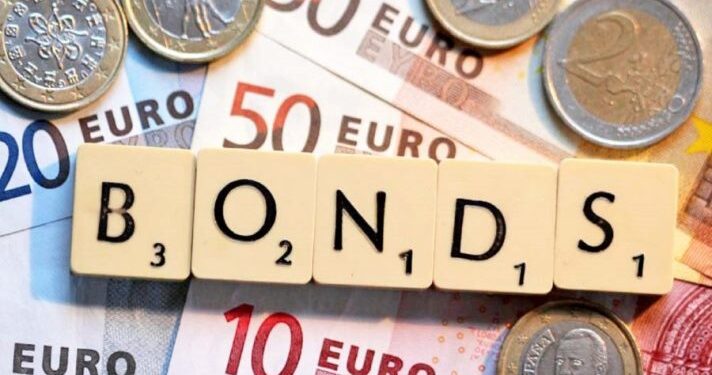Business
Nigeria’s Eurobond Market continues to tumble after Trump’s threat

Nigeria’s Eurobond market continues to see huge selloffs today as investors flee after US President Donald Trump threatened military action in the country if its government doesn’t halt the killings of Christians by Islamist militants.
The average yield on all 14 existing FGN Eurobond decreased by basis points today to 8.17 percent from 8.28 percent yesterday.
Gbolahan Ologunro, portfolio manager at FBNQuest, said that the selloffs seen in the market are due to heightened political risk, general risk-off sentiments by international investors, and profit taking.
U.S. President Donald Trump said on Sunday the U.S. military could deploy troops to Nigeria or carry out air strikes to stop what he called the killing of large numbers of Christians in the West African country. Asked if he envisioned troops on the ground or air strikes in Nigeria, Trump told reporters aboard Air Force One: “Could be. I mean, other things. I envisage a lot of things. They’re killing record numbers of Christians in Nigeria … They’re killing the Christians and killing them in very large numbers.
“ Other than the threats from Trump on Nigeria, which has seen the market go red since yesterday, wider risk-off sentiments on companies’ over-stretched valuations in the US, have left international investors making huge sell-offs on investment instruments, including the Nigerian Eurobonds,” he said.
Ologunro explained that the Nigerian Eurobonds react synchronously with the U.S. stock market, stating that whenever there’s bearish sentiment in that market, the dollar bonds are likely to move in the same direction.
The U.S. stocks dropped on Tuesday because investors were worried that company valuations were too high as they reviewed the latest flurry of quarterly earnings.
The Nasdaq, which is heavy with tech companies, led the losses, falling about 0.9%. The broader S&P 500 dropped about 0.6%. The Dow Jones Industrial Average, which is less focused on tech, had the smallest dip, losing 0.2%. All of them bounced back a little after bigger drops earlier in the day.
The selloffs seen, some of which analysts consider profit taking, come after weeks of bullish momentum seen in the dollar bonds market after the successful Trump- China trade agreement and US rate cut by 25 basis points to 3.75 percent–4.00 percent last week.
“ In the interim, risk sentiment does not support raising fresh eurobonds, although factors are still in favor of us borrowing at a lower rate than last year,” Ologunro said.
Nigeria’s government plans to issue Eurobonds worth about $2.3 billion later this year, of which the House of Representatives approved last Wednesday to help finance part of Nigeria’s 2025 budget deficit.
The government expects the pricing of the Eurobonds to align with current yields on Nigeria’s existing international bonds, which range between 6.8 percent and 9.3 percent, depending on maturity.
The average spread on Nigeria’s sovereign dollar bonds over US Treasuries had plunged to about 400 basis points as of Monday from nearly 1,000 basis points in 2023, a level that investors typically consider to mark debt distress. (BusinessDay)
-

 News21 hours ago
News21 hours agoAmid FCT Issues, Wike Flies Sons To London On Condolence Visit
-

 News12 hours ago
News12 hours agoNo Power Can Stop Muslims From Practising Shariah – Shariah Council
-

 Sports3 hours ago
Sports3 hours agoUCL Round of 16: Osimhen to face Liverpool as Real Madrid, Man City renew rivalry
-

 Business9 hours ago
Business9 hours agoFG deepens CREDICORP, targets wider coverage, disbursements
-

 News9 hours ago
News9 hours agoOver 100 terrorists storm Benue villages, kill 150 – Witness tells court
-

 Business8 hours ago
Business8 hours agoBag Of Cement Climbs To N11,000
-

 News10 hours ago
News10 hours agoEFCC detains Ozekhome over ‘Tali Shani’ UK property affair
-

 News9 hours ago
News9 hours agoNorthern Christian leaders drop ‘CAN’ title, adopt old identity


















